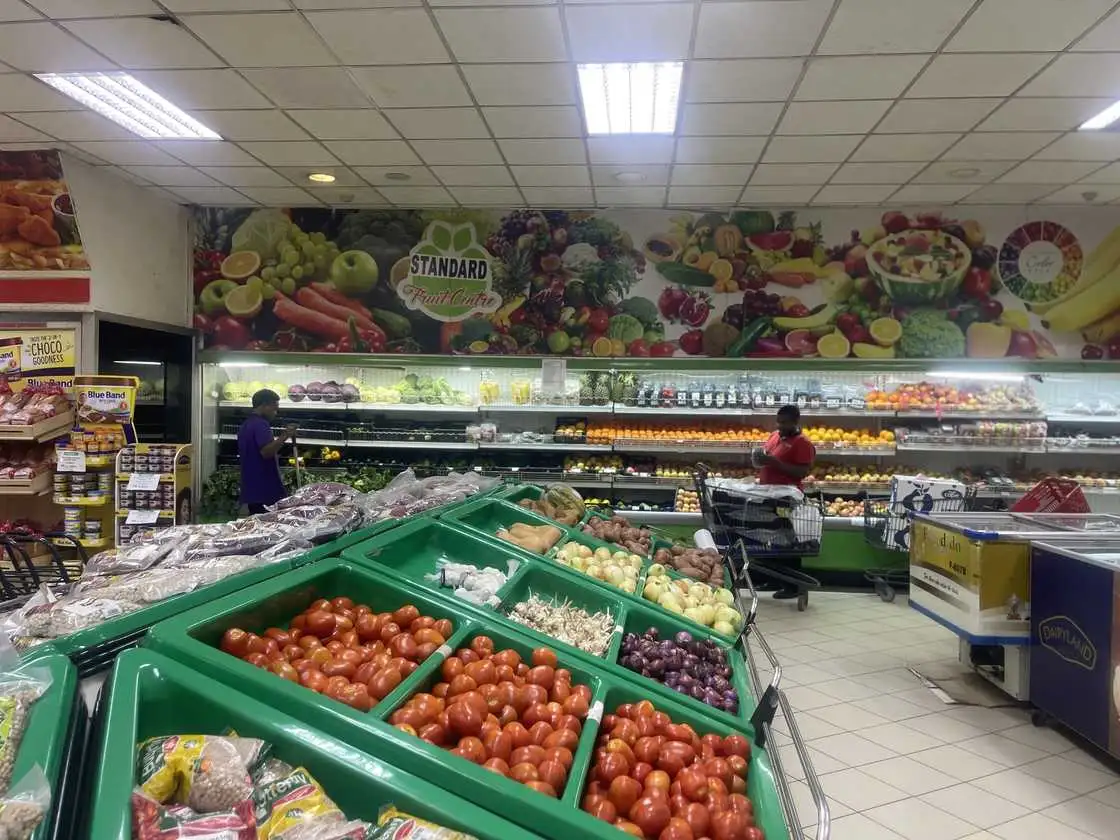Introduction
The Kenya Revenue Authority (KRA) has demonstrated resilience in the face of challenging economic conditions, collecting Sh1.243 trillion in revenue by the end of December 2024. This represents a modest growth of 4-5% over the previous year’s revenue of Sh1.189 trillion. Despite various economic hurdles, including a slowdown in GDP growth, subdued domestic demand, and inflationary pressures, the KRA exceeded its target by Sh101.316 billion, achieving 121.3% of its revenue goal for the period.
In a statement released on Tuesday, January 28, 2025, KRA attributed its strong performance to strategic revenue collection measures, modernisation efforts, and the continued contribution of various tax sources. This achievement is crucial for a country facing economic uncertainty, as it highlights the effectiveness of fiscal policies and the resilience of Kenya’s tax system.
Revenue Breakdown and Key Figures
Out of the total collection of Sh1.243 trillion, the KRA collected Sh1.120 trillion as Exchequer revenue on behalf of the National Treasury, while Sh122.872 billion was classified as Agency revenue, collected on behalf of other government entities.
The growth in Agency revenue was particularly notable, performing at 121.3% of the target. This is attributed to the increased efficiency in the collection of various non-tax revenues such as fees, levies, and service charges. Such positive results underscore the importance of diversifying revenue sources beyond the traditional tax categories.
Exchequer Revenue vs. Agency Revenue
The Exchequer revenue is critical because it directly funds the government’s national budget, enabling public sector programs and services. The fact that Sh1.120 trillion was collected on behalf of the National Treasury means that KRA is playing a vital role in financing Kenya’s government operations, which include everything from infrastructure development to healthcare, education, and security.
In contrast, the Agency revenue is directed to other state agencies, which rely on it for specific public services, including local government operations, regulatory bodies, and parastatals. The successful collection of Sh122.872 billion ensures that other essential areas of governance and public service receive adequate financial support.
Economic Challenges Impacting Revenue Collection
Despite the positive growth in revenue, the collection was not without its challenges. The Kenya economy faced significant hurdles throughout 2024, primarily characterized by:
Slowed GDP Growth
KRA’s statement highlighted that GDP growth slowed to 4.0% in the third quarter of 2024, down from 6.1% in the same period of 2023 and 4.6% in the second quarter of 2024. This indicates a stagnation in economic activity and is a cause for concern, particularly as economic growth is a critical factor in tax collection. A lower GDP growth rate means that economic transactions—such as production, investment, and consumption—are growing at a slower pace, thereby reducing the tax base and putting pressure on KRA to meet its targets.
The KRA also observed that domestic demand remained subdued, as evidenced by the Purchasing Managers Index (PMI), which averaged 49.2 points from July to December 2024. A PMI score below 50 is considered a sign of contraction in economic activity, meaning that businesses were facing challenges such as declining sales, reduced production, and weakened consumer confidence. This slowdown in economic activity typically results in lower tax revenues from sectors such as retail, manufacturing, and services.
Declining Imports
Another factor impacting the revenue collection process was the reduction in import values, which decreased by 0.6% in the first half of the 2024/25 financial year. Imports, which account for a significant portion of Kenya’s tax revenues—especially through customs duties and value-added taxes (VAT)—suffered as a result of economic challenges both locally and globally. The decline in imports also signals a weakening of demand for raw materials and consumer goods, further reflecting the slowdown in both business and consumer activity.
Impact of Government Austerity Measures
The report also highlighted the role of austerity measures implemented by the Kenyan government, particularly with regard to VATable goods. In an effort to reduce public expenditure and curb government spending, the Kenyan government implemented spending cuts on VATable goods, which inadvertently had a negative impact on revenue collection.
As a major consumer of VATable goods, government expenditure has a direct effect on domestic demand. Reduced government spending on goods and services not only affects government operations but also leads to lower tax collections from various sectors. The government’s fiscal strategy, aimed at reducing the budget deficit, may have placed a strain on revenue generation in the short term, but it was necessary to maintain a stable economic environment in the long run.
Customs Revenue and Domestic Tax Performance
While overall revenue growth was positive, there were key highlights in customs revenue and domestic taxes that showcase KRA’s ability to adapt to changing circumstances.
Customs Revenue
For the cumulative period of July to December 2024, customs revenue collection amounted to Sh429.127 billion, reflecting a growth of 4.8% from Sh409.548 billion during the same period in the previous financial year. This indicates that despite challenges, imports remained an important contributor to Kenya’s revenue, and KRA’s ongoing efforts to modernize its customs collection systems played a role in improving efficiency.
The modernization of the customs management system has seen technology-driven improvements, which have helped reduce inefficiencies, curb corruption, and enhance the speed and accuracy of revenue collection at the ports and borders. The automation of customs procedures and the introduction of new technologies have enabled the KRA to increase compliance, leading to higher collections despite the economic slowdown.
Domestic Taxes
Domestic tax collections amounted to Sh811.847 billion, showing a growth of 4.4% compared to Sh777.617 billion during the same period in 2023. Domestic taxes are vital to Kenya’s revenue generation because they come from sources such as income taxes, corporate taxes, excise duties, and VAT on domestic sales.
While growth in domestic taxes was positive, the KRA acknowledged that domestic demand remained weak, which affected the overall performance of the retail and services sectors—two important contributors to domestic tax revenue. Nonetheless, KRA’s focus on improving taxpayer compliance, expanding the tax net, and reducing tax evasion helped ensure steady revenue growth in these areas.
Strategies for Future Growth
To continue improving revenue collection, KRA is focused on several key strategies to address the economic challenges:
1. Expanding the Tax Base
One of KRA’s top priorities is to expand the tax base to include more individuals and businesses that are currently outside the formal tax net. This can be achieved through better data collection, the use of technology, and public awareness campaigns about the importance of paying taxes. The formalization of the informal sector is also crucial for expanding Kenya’s tax base.
2. Modernizing Revenue Collection Systems
KRA will continue to focus on modernizing its revenue collection systems to enhance efficiency and reduce opportunities for tax evasion. The integration of digital tools, including mobile tax solutions, e-filing, and online payment platforms, will make it easier for individuals and businesses to comply with tax regulations and for KRA to track tax payments in real-time.
3. Strengthening Compliance
The KRA is also working to strengthen compliance by improving audit and enforcement activities. The introduction of stricter penalties for tax evasion and non-compliance will help ensure that businesses and individuals adhere to tax regulations. Increased audits and investigations into high-risk sectors will also help identify and penalize non-compliant taxpayers.
Conclusion
The Kenya Revenue Authority’s collection of Sh1.243 trillion is a testament to its ability to generate revenue despite the numerous economic challenges the country faced in 2024. With 4-5% growth in revenue, KRA is making strides in maintaining fiscal stability, despite economic slowdowns, declining imports, and the adverse effects of government austerity measures.
However, there is still a long way to go. The Kenyan government will need to continue to implement strategic fiscal and economic policies to sustain growth in revenue collection. Key priorities for the coming years include modernizing tax systems, expanding the tax base, and improving taxpayer compliance to ensure that the country can meet its fiscal obligations and promote long-term economic stability.
If these measures are effectively implemented, KRA’s efforts will help Kenya weather economic uncertainties and drive sustainable growth in the coming years.
Ready to take your career to the next level? Join our dynamic courses: ACCA, HESI A2, ATI TEAS 7 , HESI EXIT , NCLEX – RN and NCLEX – PN, Financial Literacy!🌟 Dive into a world of opportunities and empower yourself for success. Explore more at Serrari Ed and start your exciting journey today! ✨
photo source: Google
By: Montel Kamau
Serrari Financial Analyst
29th January, 2025
Article, Financial and News Disclaimer
The Value of a Financial Advisor
While this article offers valuable insights, it is essential to recognize that personal finance can be highly complex and unique to each individual. A financial advisor provides professional expertise and personalized guidance to help you make well-informed decisions tailored to your specific circumstances and goals.
Beyond offering knowledge, a financial advisor serves as a trusted partner to help you stay disciplined, avoid common pitfalls, and remain focused on your long-term objectives. Their perspective and experience can complement your own efforts, enhancing your financial well-being and ensuring a more confident approach to managing your finances.
Disclaimer: This article is for informational purposes only and does not constitute financial advice. Readers are encouraged to consult a licensed financial advisor to obtain guidance specific to their financial situation.
Article and News Disclaimer
The information provided on www.serrarigroup.com is for general informational purposes only. While we strive to keep the information up to date and accurate, we make no representations or warranties of any kind, express or implied, about the completeness, accuracy, reliability, suitability, or availability with respect to the website or the information, products, services, or related graphics contained on the website for any purpose. Any reliance you place on such information is therefore strictly at your own risk.
www.serrarigroup.com is not responsible for any errors or omissions, or for the results obtained from the use of this information. All information on the website is provided on an as-is basis, with no guarantee of completeness, accuracy, timeliness, or of the results obtained from the use of this information, and without warranty of any kind, express or implied, including but not limited to warranties of performance, merchantability, and fitness for a particular purpose.
In no event will www.serrarigroup.com be liable to you or anyone else for any decision made or action taken in reliance on the information provided on the website or for any consequential, special, or similar damages, even if advised of the possibility of such damages.
The articles, news, and information presented on www.serrarigroup.com reflect the opinions of the respective authors and contributors and do not necessarily represent the views of the website or its management. Any views or opinions expressed are solely those of the individual authors and do not represent the website's views or opinions as a whole.
The content on www.serrarigroup.com may include links to external websites, which are provided for convenience and informational purposes only. We have no control over the nature, content, and availability of those sites. The inclusion of any links does not necessarily imply a recommendation or endorsement of the views expressed within them.
Every effort is made to keep the website up and running smoothly. However, www.serrarigroup.com takes no responsibility for, and will not be liable for, the website being temporarily unavailable due to technical issues beyond our control.
Please note that laws, regulations, and information can change rapidly, and we advise you to conduct further research and seek professional advice when necessary.
By using www.serrarigroup.com, you agree to this disclaimer and its terms. If you do not agree with this disclaimer, please do not use the website.
www.serrarigroup.com, reserves the right to update, modify, or remove any part of this disclaimer without prior notice. It is your responsibility to review this disclaimer periodically for changes.
Serrari Group 2025
















